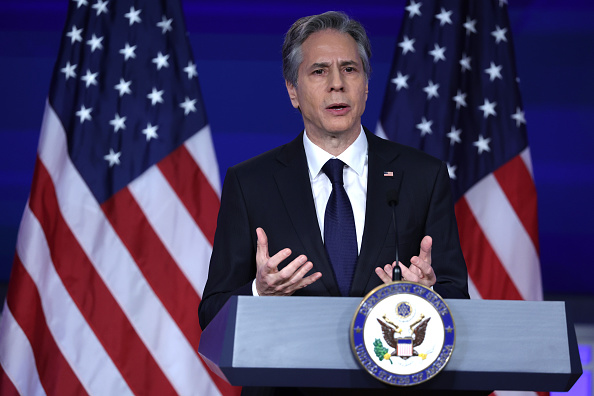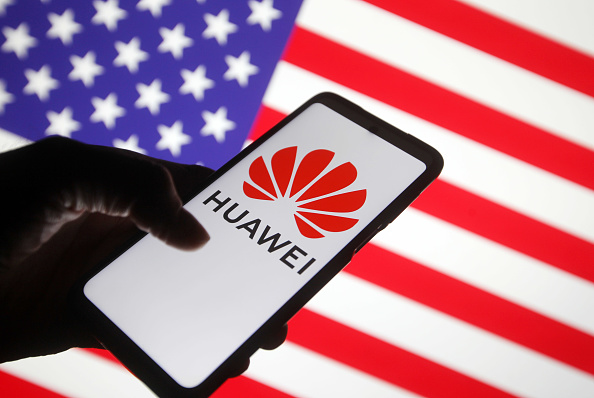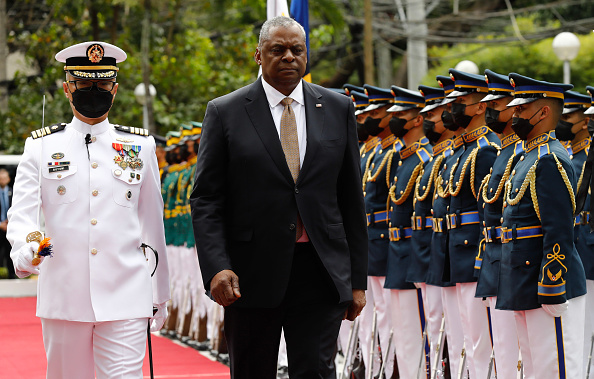
 Hot Air
Hot AirU.S. Secretary of State Antony Blinken has decided to postpone a visit to China after an alleged Chinese spy balloon was tracked flying across the United States in what officials called a "clear violation" of U.S. sovereignty.
As the balloon drifted over Montana, military and defense leaders scrambled to deploy jets and weighed whether to shoot it out of the sky. However, after reviewing the threat profile of the balloon, the government decided not to act out of concern for the safety and security of people on the ground. The Biden administration's response to the incident has prompted criticism from both sides of the aisle.
Blinken had been scheduled to depart tonight for Beijing. However, consultations with both interagency partners and Congress concluded that the conditions were not right for the trip.
In a statement, China's foreign ministry said the balloon was a civilian airship intended to be used for "mainly meteorological" purposes and that it "regrets the unintended entry" of the balloon into U.S. airspace.
In response, a U.S. spokesperson stated "we have noted the PRC statement of regret, but the presence of this balloon in our airspace is a clear violation of our sovereignty as well as international law, and it is unacceptable that this has occurred."
Prior to the trip cancellation, China had been expected to confront Mr. Blinken with a strong message that the United States should put aside its containment policies and seek better cooperation. Topics for discussion were to include tariffs, human rights and climate change, as well as geopolitical hotspots including Taiwan and Russia.
"The U.S. should end its obsession with containing China," a commentary in the state-run People's Daily wrote ahead of the visit.
Learn more in "Still Talking Past Each Other," by David Shambaugh, a Gaston Sigur Professor of Asian Studies and Director of the China Policy Program at George Washington University.
 Tech Battle
Tech BattleThe U.S. government has stopped approving licenses for American firms to export most items to Huawei, in a move that may precede a total ban on the sale of American technology to the company. The Chinese technology giant has been accused of presenting a threat to U.S. national security and of working with the Chinese Communist Party, an allegation that the company and the Chinese government have repeatedly denied.
The Global Times called the move a "a sign that paranoid Washington has taken its relentless assault on the Chinese tech industry a step further and morphed it into a geopolitical battle for supremacy."
The Trump administration in 2019 imposed restrictions on American technology exports to Huawei by adding the group in a move that was part of a strategy to crack down on Chinese companies that posed a risk to U.S. national security. Over the past two years, President Biden has cracked down even further, particularly in the area of cutting-edge technology. In October, he imposed a number of restrictions on advanced semiconductors and chip making equipment to Chinese groups.
As the Biden administration looks to strengthen its connections with Asian allies and offset China's strength in cutting-edge technologies, President Biden and India's prime minister, Narendra Modi have agreed to expand cooperation on advanced weaponry, supercomputing, semiconductors and other high-tech fields.
According to the White House, that would include cooperation on developing jet engines and military munitions technology. Specifically, it said the U.S. government would look to expedite a review of an application by U.S. manufacturer General Electric to build jet engines in India for use on indigenous Indian aircraft.
The White House is reportedly considering an executive order to ban U.S. investment into high-end Chinese tech, such as artificial intelligence, quantum computing, 5G and advanced semiconductors. However, investors continue to flock to Chinese artificial intelligence companies, with U.S. investment accounting for nearly a fifth of investments from 2015 to 2021.
Learn more in "The Sino-American Tech Trap," by Stephen Roach, a Faculty Member at Yale University.
 Pacific Alliances
Pacific AlliancesWashington has secured four additional military bases in the Philippines, according to a newly announced deal aimed at countering China. The bases will complete an arc of U.S. alliances surrounding China, stretching from South Korea and Japan in the north to Australia in the south. It will also provide U.S. forces with a greater strategic footing in the South China Sea and near Taiwan.
"Our alliance makes both of our democracies more secure and helps uphold a free and open Indo-Pacific," said U.S. Defense Secretary Lloyd Austin, who discussed the deal at a joint news conference with Philippines' Defense Secretary Carlito Galvez at the Philippine military headquarters in Manila.
The deal authorizes the U.S. to rotate troops to a total of nine bases throughout the Philippines. While the U.S. already had limited access to five sites under the Enhanced Defence Cooperation Agreement (EDCA) - the new additions will "allow more rapid support for humanitarian and climate-related disasters in the Philippines, and respond to other shared challenges," according to a statement from Washington.
China criticized the agreement, emphasizing that U.S. actions are "escalating regional tension and undermining regional peace and stability."
The deal also comes after other recent announcements regarding U.S. forces in the Pacific. Just last week, the U.S. Marine Corps officially opened its first new base in 70 years, a 4,000-acre installation on the U.S. Pacific island of Guam that one day is expected to host 5,000 Marines. Earlier in January, the U.S. and Japan also announced a significant strengthening of their military relationship and upgrade of Washington's military's force posture in the country.
According to experts, each of these developments are part of a broader U.S. strategy to disperse and strengthen its forces around the Pacific amid increasing tensions with China.
Prepared by China-US Focus editorial teams in Hong Kong and New York, this weekly newsletter offers you snap shots of latest trends and developments emerging from China every week, while adding a dose of historical perspective.
- 2023-01-27 Spheres of Influence
- 2023-01-20 China's Davos Pitch
- 2023-01-13 Strategic Encounters
- 2023-01-06 Common Challenges
- 2022-12-23
- 2022-12-16 All in On Africa
- 2022-12-09 Seeking Stabilization
- 2022-12-02 Turf Tension
- 2022-11-18 Thawing Ties?
- 2022-11-11 Face to Face
- 2022-11-04 The Pacing Challenge
- 2022-10-28 Third Time’s the Charm
- 2022-10-21 United as Steel
- 2022-10-14 Party Time
- 2022-10-07 Elections Incoming
- 2022-09-30 Hot Intrigue
- 2022-09-23 Global Gridlock
- 2022-09-16 Injecting Stability
- 2022-09-09 Cutting Edges
